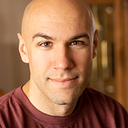Member-only story
How to Decide When We Die
We are semantic apes. We love categorizing things. Even in Genesis, God seems to be amused by Man’s propensity to name things, bringing “all the wild animals and all the birds in the sky” to “see what the man would name them.” We love to classify and differentiate. But it’s easy to see why this exercise might amuse God. Nature is happy to challenge us with annoying exceptions to all of our beautiful categories. It seems that Nature is unwilling to behave even in our core physics, foiling notions like the separability of waves and particles or space and time. I am a neuroscientist, and in biology, we have our own nuisances. One of these annoying problems is answering, “when is death?”
It sounds like it should be an easy question. Obviously, there are dead people and alive people. Dying seems inevitable because so far, everyone’s done it. But defining the point of death has historically been a moving target. Until the mid-20th century, death was conveniently defined by when any measurable vital function, like the heartbeat, ceased. But it turned out that mechanically shoving air in and out of the lungs and restarting the heart were relatively easy hurdles to overcome. Think of how crazy this is! If you could go back in time to a century ago, you could say, without lying, “oh yeah, in the future, people die and rise from the dead all the time. It’s pretty normal.”
